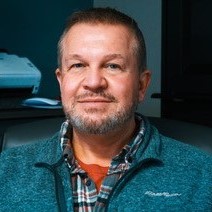According to the Substance Abuse and Mental Health Services Administration (SAMHSA), Behavioral health equity is a right! A right to access high-quality and affordable health care services and supports for all populations, including Black, Latino, and Indigenous and Native American persons, Asian Americans and Pacific Islanders and other persons of color; members of religious minorities; lesbian, gay, bisexual, transgender, and queer (LGBTQ+) persons; persons with disabilities; persons who live in rural areas; and persons otherwise adversely affected by persistent poverty or inequality. This series will offer important tools and advance ideas relevant to the varied needs, perspectives, and communities in Region 4.
This interactive course provided a foundational conversation that placed the idea of prevention leadership in the context of cultural humility, inequity, and social justice.
Many minority populations are disproportionately affected by substance use disorders and the LGBTQ community is no different. We used data to take a look at how LGBTQ youth and young adults are affected by substance use disorder and reviewed some strategies to combat this issue. Attendees also learned new ways to engage LGBTQ youth and young adults in their work!
A facilitated panel discussion featuring three subject matter experts from our region. This session will provide a focus on understanding the culture of Appalachia and similar rural communities and how that culture informs the lens through which prevention efforts should be focused.

Cerise Hunt, PhD, MSW, is the Associate Dean for Equity, Diversity, and Inclusion, director for the Center for Public Health Practice, assistant professor in the Department of Community & Behavioral Health at the Colorado School of Public Health on the University of Colorado Anschutz Medical Campus. She is responsible for collaboratively leading the school’s efforts to advance equity, diversity, and inclusive excellence. Cerise is also responsible for forming community linkages that guide public health practice, providing education and workforce development opportunities, and engaging in public health practice research. Cerise was instrumental in the formation of the Colorado Black Health Collaborative, which is a community-based organization that is committed to improving health and wellness in Colorado’s Black, African, and African American communities through collaborations, and partnerships, with community-based organizations, non-profits, public organizations, private entities, and government agencies.

Leslie Dill has a passion for health education and has been working in the field for over 20 years! She received her Bachelor of Science and Master of Arts in Education, both in Health Education and Promotion, from East Carolina University. GO PIRATES! Leslie is most excited when educating around topics such as sexual and reproductive health, LGBTQIA+ topics, substance use disorders, and mental health. She worked at UNC Charlotte for 12 years as a Health Education Specialist. GO NINERS! Leslie has had many contract jobs over the years that have allowed her to pursue many of her passions while still having a full-time position. One of her favorite contract positions is with the North Carolina School Health Training Center where she has served as a Cadre Member for over 7 years. Leslie currently serves as the OPT Out Program Manager for Carolinas CARE Partnership and she is LOVING her work which includes lots of time spent collecting data and building a task force comprised of professionals from 10 counties! Leslie lives in her hometown of Gastonia, NC with her partner, his two children, her Shih-Tzu Weiland, and cat Jane.

Carlton Hall is the President and CEO of Carlton Hall Consulting LLC (CHC), a multi-faceted, full-service consulting firm designed to provide customized solutions and enable measurable change for communities, organizations, families, and individuals. Carlton Hall has been providing intensive substance abuse prevention focused and community problem solving services to the nation for the last 25 years. Currently, Carlton and the CHC team provide executive training and technical assistance support to the Southeast PTTC (Region 4).

Michael Meit serves as Director of the East Tennessee State University Center for Rural Health Research, located in the Appalachian Highlands of Northeast Tennessee, and as Deputy Director for the ETSU/NORC HRSA-funded Rural Health Equity Research center. Meit has been actively involved in public health systems and services research for many years, particularly as it relates to rural, local public health and community health outcomes. His contributions include numerous peer-reviewed publications, funding from the Centers for Disease Control and Prevention, Public Health Accreditation Board, and others, and serving as a site PI for the new Consortium for Workforce Research in Public Health (CWORPH) research center. Currently, Meit is also leading projects focused on developing a Rural Recovery Ecosystem Index (HRSA), developing of a nationwide Prosperity Index with overlays of leading causes of death (CDC), and analyzing the distribution and use of block grant resources at the state- and local-level (HRSA), among others. Meit serves on the editorial boards for the Journal of Public Health Management and Practice, the Journal of Appalachian Health, and Public Health Reports, and is a Governing Councilor for the American Public Health Association. In 2019 Michael was named the National Rural Health Association’s Outstanding Researcher.

Trent Coffey is the Executive Director of Schools Together Allowing No Drugs (STAND), a community-based coalition organized in Scott County, Tennessee to combat youth drug and alcohol abuse. A graduate of the University of Tennessee – Knoxville, he has been a strong partner for change in East Tennessee prevention for more than twenty years. Never satisfied with the wins of yesterday, he actively worked to spread the community coalition model beyond the confines of his small community to a broader network of coalitions throughout the state of Tennessee. He is a charter member of the Tennessee Certification Board, which brought recognition and certification to prevention professionals throughout the state of Tennessee. He served as a representative for the Tennessee Prevention Advisory Council and board member of Community Anti-Drug Coalitions Across Tennessee (CADCAT). In 2012, Trent was one of ten individuals selected to attend the School of Prevention Leadership by SAMHSA. Trent is a contributor on the “Rural Youth Engagement Toolkit”, published by Community Anti-Drug Coalitions of America (CADCA). In 2020 he presented a series of trainings to prevention professionals from the state of Kentucky on “How to Engage Rural Communities”.
CONTACT HOUR ELIGIBILITY
In order to be eligible for the stated contact hours/certificate of attendance, you must join the live webinar on the video platform.
Certificates must be requested within one week of the event and will be processed within 30 days.
If you are having issues accessing the room/application at the time of the event: Please email [email protected] before the start of the webinar so that we can assist you.